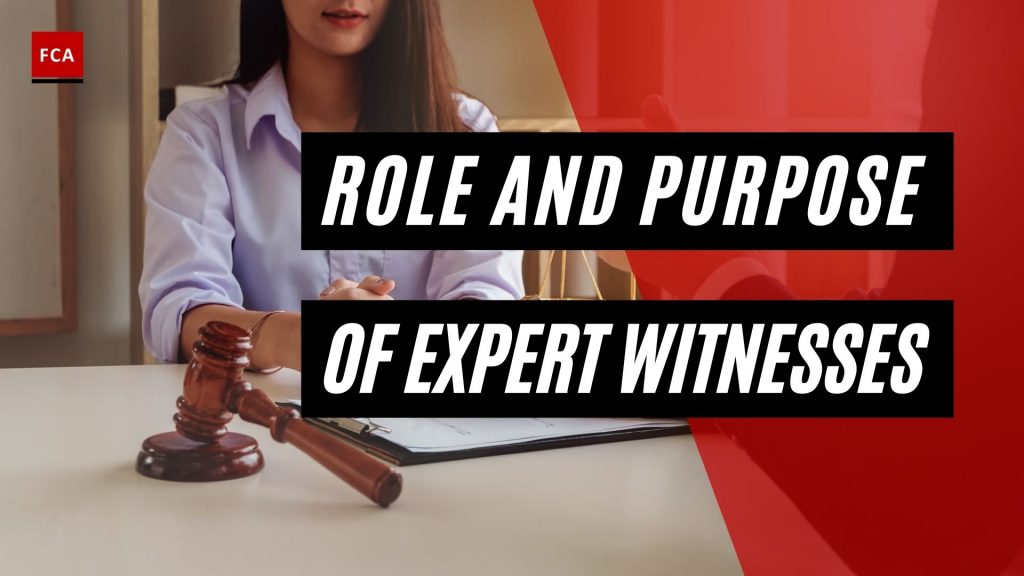Role and purpose of expert witnesses. There are several duties of an expert witness. They should provide independent assistance to the court by way of unbiased opinion about matters within their expertise. An expert witness should state the facts or assumptions upon which his opinion is based. They should not omit to consider material facts which could detract from his concluded opinion. They should also clarify when a particular question or issue falls outside their expertise.

Role And Purpose Of Expert Witnesses
If an expert’s opinion is not properly researched because they consider that insufficient data is available, then this must be stated with an indication that the opinion is no more than a provisional one. Suppose the expert cannot assert that the report contains the truth, the whole truth, and nothing but the truth without some qualification. In that case, that qualification should be stated in the report.
If an expert witness changes their view after the reports have been exchanged, then on a material matter, having read the other side’s expert’s report, or for any other reason, such change of view should be communicated to the other side without delay and to the court as well.
Where expert evidence refers to photographs, plans, calculations, analyses, measurements, survey reports, or other similar documents, they must be provided to the opposite party at the same time as the exchange of reports.
At all stages in the procedure, an expert witness should provide independent assistance to the court and the parties by way of objective, unbiased opinion concerning matters within his expertise which should be based on the evidence collected. This applies to both the initial meetings of experts and to evidence at trial. An expert witness should never assume the role of an advocate.
The expert’s evidence should normally be confined to technical matters. The court will be assisted by receiving an explanation or evidence of common professional practice. The expert witness should not give evidence or opinions about what the expert himself would have done in similar circumstances.
Role Of Expert Witness
He should co-operate with the expert of the other party or parties in attempting to narrow the technical issues in dispute at the earliest possible stage of the procedure and to eliminate any peripheral issues. He should co-operate with the other expert in attending meetings as necessary and in seeking to find areas of agreements and disagreements to be set out in the joint statement of experts ordered by the court.
The expert evidence presented to the court should be and be seen to be, the independent product of the expert, uninfluenced as to form or content by the exigencies of the litigation.
An expert witness should state the facts or assumptions upon which his opinion is based. He should not omit to consider material facts which could detract from his concluded opinion.
Purpose Of Expert Witness
An expert witness is required when it becomes necessary to have an opinion on evidence to assist in resolving a dispute. This opinion may lead to an early resolution of the dispute. An expert witness may be involved in court proceedings and may be called to give evidence.
Once a report has been produced, the parties can ask questions on any aspect of the report. The expert is required to respond, provided the questions are for clarification purposes. The report and any answers are given then form part of the evidence before the court and are used by them to assist in making a judgment.
Final Thoughts
Essentially, expert evidence is opinion evidence or the expert’s opinion. The expert witness’ primary function is to assist the court in reaching a decision by providing independent expert/technical analysis and opinion on an issue(s) based on the information provided by those instructing him. The expert evidence should be as detailed as possible in order to persuade the judge that the expert’s opinions are well founded.








